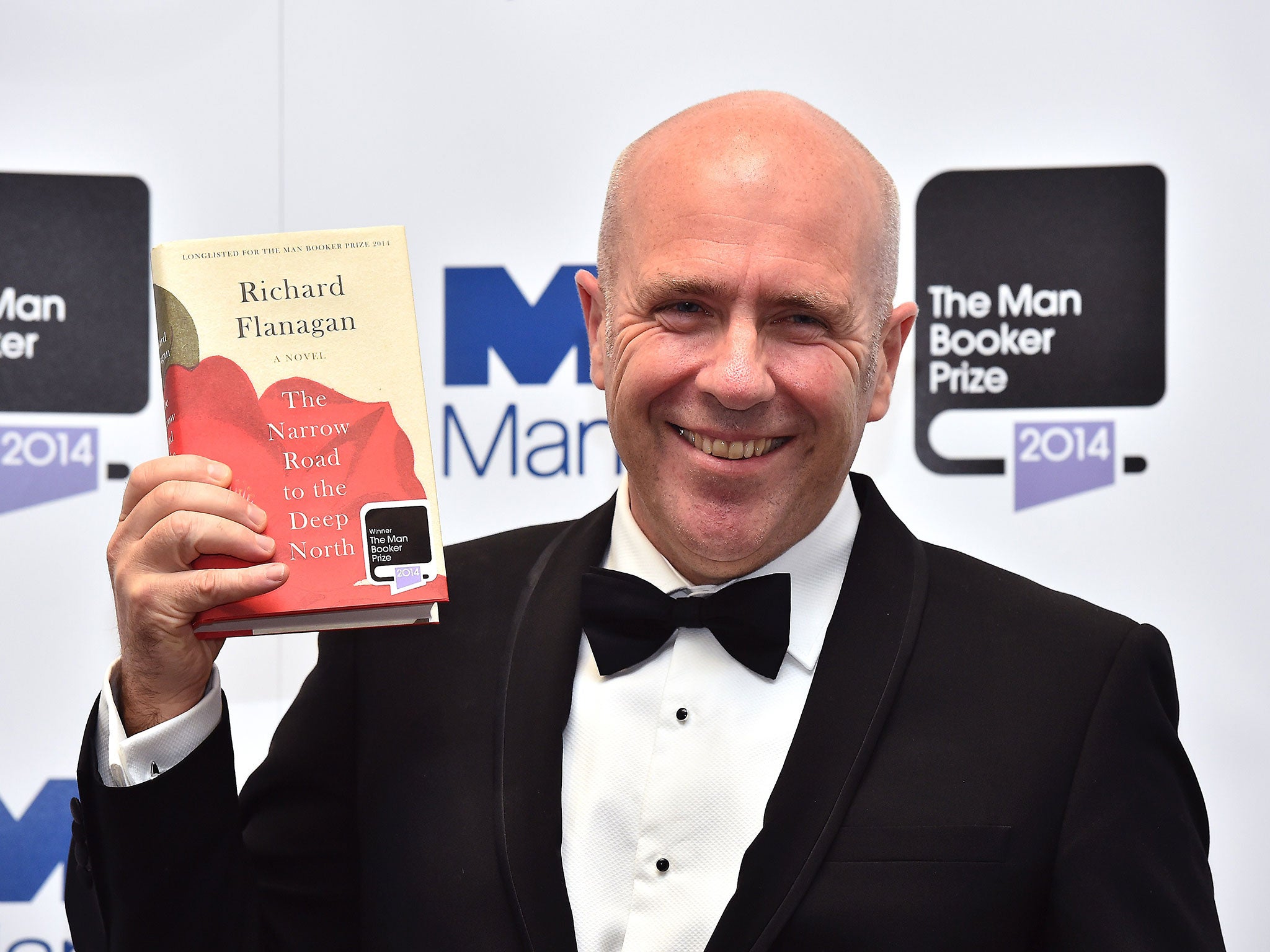Man Booker Prize 2014: Winner Richard Flanagan considered 'working down the mines' to make ends meet last year
The Narrow Road to the Deep North author said 'writing is a very hard life'

He’s just been awarded one of the most coveted literary accolades in the wold – but a year ago Man Booker Prize winner Richard Flanagan was strapped for cash.
The Australian author, who was celebrated for his sixth novel The Narrow Road to the Deep North, was so desperate for money that he considered working down a mine.
Flanagan told the Telegraph: “A year-and-a-half ago when I finished this book, I was contemplating going to get what work I could in the mines in far northern Australia because things had come to such a pass with my writing. I had spent so long on this book.
“There's nothing unusual about that for writers. Writing is a very hard life for so many writers.”
The 53-year-old, who described himself in his acceptance speech as coming from "a tiny mining town in the rainforest in an island at the end of the world", candidly revealed that the £50,000 prize money had presented him with the opportunity to continue to pursue his passion.
“[I will] do what everyone else does with money: live,” he told the newspaper.
“I'm not a wealthy man. In essence, this means I can continue to write.
The Narrow Road to the Deep North, a Second World War novel about the Burma Death Railway, was inspired by Flanagan’s father Archie, who died on the day of its completion.
Flanagan worked on the novel for twelve years before finishing it last year, having rewritten it five times. He said of the discarded versions: “They were rubbish, they were bad and they didn't work. I don't think I'm much of a writer but I'm a better re-writer.”
The chairman said the result was a majority decision that took several rounds of voting and took the judges three hours. “The best and worst of judging books is when you come across one so hard in the stomach that you can’t pick up the next one for a couple of days, you know you’ve met something extraordinary,” he said.
“That’s what happened in the case of this one.”
Flanagan’s was the only book by a Commonwealth author to make the shortlist, and beat bookies’ favourites Neel Mukherjee, for The Lives of Others and Independent columnist Howard Jacobson’s J. He is the third Australian to win the prize in its 46-year history, after Thomas Kenneally, and Peter Carey who won it twice.
Flanagan said:” I’m very grateful for this; it’s one of the greatest honours you can be accorded in the world of literature. I didn’t expect it. I was shocked to be on the longlist.”
Join our commenting forum
Join thought-provoking conversations, follow other Independent readers and see their replies
Comments
Bookmark popover
Removed from bookmarks